The Boys in the Band: Joe Mantello on bringing gay history back to life
Since directing "The Boys in the Band," Joe Mantello sees Mart Crowley’s landmark gay play in a whole new light

Mart Crowley’s The Boys in the Band bears a unique distinction as a gay classic that many gays love to hate — whether or not they actually have seen the play onstage, or watched William Friedkin’s 1970 film adaptation. Since its original, revolutionary 1968 Off-Broadway production, the play’s reputation as a comical but caustic representation of gay male lives and relationships has preceded it into any conversation about queer stigma, invisibility, and self-loathing.
The group of gay men who gather in an Upper East Side Manhattan apartment to celebrate a birthday spend more time cutting each other down than cutting cake. The party’s host Michael, birthday boy Harold, and their friends and frenemies are no jolly poster boys for queer affirmation. But fifty years of queer progress hasn’t yet made the characters’ shared condition obsolete. The messiness of their lives and their biting humor can still connect sharply.
The play found an eager new audience with director Joe Mantello’s Tony-winning 2018 production, boasting an all-gay cast filled with out-and-proud A-list actors, including Jim Parsons, Zachary Quinto, and Matt Bomer. Mantello, an award-winning actor himself — and two-time Tony-winning director of Broadway hits like Take Me Out, Assassins, and Wicked — sought to capture what worked fabulously onstage and transfer it to the screen, with a new film adaptation featuring the entire Broadway cast, which premiered earlier this week on Netflix.
The film, like the play, was produced by media titan Ryan Murphy, and benefited from the hand of the playwright, Crowley, who, sadly, died earlier this year. “Mart was a very generous collaborator,” says Mantello. “He was around a lot, but he really gave us the time and space to explore our own version. In fact, he not only encouraged it, he insisted that we do that. And that’s just the kind of person he was. He was very open-hearted, very generous. And I think he found it absolutely delightful that we were able to bring something new to this.”
Directing only his second feature film since his 1997 adaptation of Terrence McNally’s Love! Valour! Compassion!, a show he also directed on Broadway, Mantello was able to bring his own experience transferring a play from stage to screen. And, having acted in the Murphy-produced Netflix drama Hollywood (as closeted production chief Dick Samuels), he considered himself in safe hands collaborating again with Murphy and Hollywood producer Ned Martel, who worked with Crowley on the new Boys in the Band script.
Mantello has nothing but praise for Murphy. “He’s fantastic because he makes sure that you’re surrounded by really top-notch, first-rate people,” he says. “And so someone like me, who has very limited experience on a film set, feels the support of experts, and that allows me to do my job and to express the things that I do know, and to rely on the expertise of a team that’s surrounding me. And that’s just great.”

Jim Parsons, Robin De Jesus, Michael Benjamin Washington and Andrew Rannells — Photo: Scott Everett White/Netflix
METRO WEEKLY: First of all, I have to say I came to this movie a virgin of The Boys in the Band. I hadn’t seen the Friedkin version and hadn’t seen any prior stage production of it.
JOE MANTELLO: Oh, wow. Well, can I ask you a question first?
MW: Sure.
MANTELLO: I’m not asking you whether you thought it was good or not, but what did you make of it? You sound like we’re of different generations. Did you feel like it had any resonance to your life?
MW: Absolutely, it did. Underneath the camp and the bitchiness and the way they talk to each other, it hasn’t changed. We don’t call each other pansies and fairies, now it’s gurl and bitch. These things have evolved. And the reputation that the play has of “this moment of self-loathing gay men,” whatever that is, that feels current, as well.
MANTELLO: I’m just now beginning to talk to younger queer journalists and they don’t have the same issues with it, they don’t have the same inability to see themselves in it. In fact, it feels very relevant to them. Yes, the details are different, but they’re able to make correlations between moments, language, rituals and that’s fascinating to me.
MW: How did you first encounter The Boys in the Band?
MANTELLO: I was caught somewhere in between, because I was the generation that came between. I encountered it in the early ’80s, when I was in college. So we were somewhat past that time — obviously there were elements that still lingered, but certainly hadn’t come as far as we have now. And so when I saw it, I saw it right around the time or right after I came out and I thought it was terrifying. It felt like a cautionary tale and it felt like something that was hard to watch, but the artist in me loved it as a piece of work and loved the performances. And so it was like I had this strange, schizophrenic reaction to it.
MW: There was at least one moment for me that was hard to watch. Alan basically assaults and gay-bashes Emory, and is not immediately shown the door. That, viscerally, is like, “Ugh, how can he still be in that room?” What’s your take on how that moment flares up and plays out between those characters?
MANTELLO: My feeling is that if they could have shown him the door, they would have to be comfortable being their authentic selves around him. Do you know what I mean? They were already in retreat. The only one who pushes back, and it’s why he gets his ass kicked, is Emory. And Emory is like, “I’ll take you down.” But the rest were — I don’t want to say cowardly, because that’s editorializing — but they were in retreat and they didn’t want to cause waves. I think that extended to the moment after Emory is brutalized. But you also have to understand, the context of it is, of course fags got beaten up. That wasn’t a new moment. They lived in a world where that happened all the time. Their lives were constantly devalued, so they would never think to ask for more. That’s the source of the shame. That’s the source of the self-loathing. That’s the cost of it.
MW: It’s sad and difficult to watch. But, also, I think Emory represents himself and his era well. I’ve been privileged to know gay men and women who were out in that era, in the 1950s and ’60s. But it strikes me that there are young, queer people who might see this movie, who will never know men who lived then. What do you think Boys in the Band has to teach the children, as they say?
MANTELLO: I think it’s always good to be reminded of our history. I think it’s always good to honor our history and those who came before us, to have empathy for them, to understand that by applying modern standards to their actions will only leave you feeling frustrated, and that what’s important to understand is the context, the history, the culture that they were living in. When we were doing the play, I found an article on the front page of the New York Times. It was a story about “homosexuals,” as they referred to them, and cracking down on crime. And in the piece — quite blatantly and more than once — the words “degenerate” and “perverts” were used to describe gay men. This is the New York Times in the mid-60s. No one said anything, there wasn’t any pushback, there wasn’t any backlash, no one got canceled. It was just an acceptable term.
If you were someone living in that time and you read the New York Times as the paper of authority and you saw that — and in addition, someone is telling you, “You’re sick and you need to see a psychiatrist” to change who you are, because that’s how sick you are — and these are the images and the messages you’re being bombarded with every single day, how is there not a cost to that? How is there not an erosion of your humanity? What bothers me about people’s response to the play sometimes is that it feels reductive. And what it does is it places responsibility on that failure of the spirit on these men, rather than the society that they existed within. It’s like these men are just dismissed as somehow they didn’t get it together. I have great compassion for these characters. I think Emory is heroic. I genuinely do. I believe a year and a half from this party, Emory will be at Stonewall.
MW: I can see that. Talking about the society around them, these are queer people who grew up mostly without LGBTQ heroes. They didn’t get to see something like a star-studded, all-gay cast on Broadway performing a show, or in a movie. Or, to get to see artists like you accept major awards on national TV and kissing your partner, which is huge. So you’re getting to play a role in shaping a different narrative for the generations that are alive now. How do you feel about that?
MANTELLO: Well, all I can tell you is a story from my past. When I was in high school, I would watch the Tony Awards every year. And there was a year Torch Song Trilogy won best play. And the man who was the producer, John Glines, went up to the microphone and as he was giving his thanks, he thanked his lover. It was the first time, I think — certainly the first time I remember, but I also think just the first time ever — that something like that had happened. And as a young man in Rockford, Illinois, who saw that, that had a profound effect on me, because it told me that was possible. That this thing that I was so desperately trying to change and submerge in myself and walk away from, there was somebody who was standing up, proudly thanking his lover. You can’t underestimate the trickle down effect of that. So I think the wonderful by-product of all of these other gay actors being in this, is that somebody is saying, it’s possible. Sometimes that’s all you need.

MW: You were able to keep the entire Broadway cast intact for the movie, which is certainly not always the case. Was that always the plan?
MANTELLO: That was always the plan and there was no issue, because first of all, I think they were all pretty extraordinary in the play, and I think even better in the film.
MW: How did you approach the absence of audience interaction, which, certainly as a cast, they had grown used to?
MANTELLO: I think what happens is that the rhythm of the dialogue dictates a pace and energy that becomes ingrained in them. I think it was probably more useful to me when we were editing the film to understand the rhythm of a joke, having seen it played in front of an audience. It’s like, if you deconstruct that joke, this is what needs to happen. It needs to happen in these three parts, and then that’s how you land it. So I can create that rhythm in editing, but I think it was just ingrained in them at that point.
MW: You had the prior experience of going from stage to screen with Love! Valour! Compassion! by Terrence McNally. On the surface, they share many similarities. What were some major differences between them in going from play to screen?
MANTELLO: That cast was the entire original cast with one exception. Nathan Lane had played the role on stage and was unavailable, and so Jason Alexander joined us and they were both wonderful in very different ways. And so right off the bat, the dynamic was just slightly different. The other major difference is that it was at a time when you could make a small, independent film for not very much money. And in fact, that’s what Love! Valour! was. And so it was a real struggle. We had an extremely limited shooting schedule. We had to shoot outside Montreal. It was a film where probably over 50 or 60 percent of it took place outside over one beautiful summer. And in that particular summer that we were shooting, it rained two-thirds of the time. So it was just a different thing. There wasn’t Ryan Murphy muscle to make things go smoothly, we just filmed.
MW: Ryan Murphy muscle apparently gets things moving on stages, soundstages, studio lots, everywhere. Can you talk more about that collaboration?
MANTELLO: The thing about Ryan, what I admire most about him, is, when he got into the room — because that’s what you’ve got to do in this business, you’ve got to get into the room and the room is where the power is — he didn’t get in the room and close the door behind him. He held the door open for a lot of other people to come in and said, “Come on, come into the room with me, join me, let’s tell our stories. We will be the ones who tell our stories.” He’s a remarkable collaborator and friend.
MW: You can definitely see how he has opened the door for people, with Pose especially. And to talk about Hollywood for a second, that series imagines a world where being out and proud would have been very different for the men in The Boys in the Band, if the events in Hollywood had actually taken place. I know some people feel the revisionist history maybe went too far. What do you say?
MANTELLO: You want to know my honest answer? I haven’t seen it, so I don’t know how it plays out. I never watched it.
MW: Wow, that is crazy.
MANTELLO: No, I never watched it.

MW: But you do know what happened.
MANTELLO: I do know what happened, but the tone of something can be affected really drastically in post-production. So what I will say to you is that, on paper and when we were shooting it, it did not seem extreme, that there was something very interesting about the revisionist history. So I guess from the little bit that I know, people felt that “Ryan solves racism by making a movie,” right? Is that the general consensus of people who objected to it?
MW: I assume.
MANTELLO: [Laughs.] I think he always imagined it as a fable. I feel like I can’t speak to it with any authority, because I haven’t seen it. So I don’t know what the end result looks like or what it feels like.
MW: Okay. Well, I won’t hold you to defending it. Now I’m going to ask you about something I do expect your full disclosure on, because I’m really intrigued by your Broadway revival of Virginia Woolf, which unfortunately was interrupted by the lockdown while still in previews. First, on a practical level, when there’s a possibility of trying again, do you think that the company would attempt to remount that show?
MANTELLO: I don’t think anyone has anything against it. I think it’s highly unlikely, because what would magically have to happen is that the four actors’ schedules would line up perfectly with theater availability and all sorts of other things along the line. So I wouldn’t say that it’s never going to happen, but I would place it under the category of highly unlikely. But I’ve been surprised before, so I don’t know.
MW: It seems like any Broadway show going up is a miracle. So anything can happen. I would love to have seen Laurie Metcalf do that part. Also, the casting of Rupert Everett and Russell Tovey, who both are out, would suggest a queer angle. Was that the case?
MANTELLO: It really wasn’t. I want to be able to tell you that it was, but it really wasn’t. And we’ve been, obviously, having lots of conversations these days about queer actors playing queer roles. And my feeling about that, and I think in this particular case [with The Boys in the Band], it really affects the storytelling and it affects the work and there are lots of benefits that we gained because of this. But I hesitate to be dogmatic about it, because I think you leave yourself open to the argument that the opposite is true. And I don’t think that. I cast Russell and Rupert because they were the best actors for those roles in my interpretation of this play, but it had nothing to do with their sexuality. Certainly, it wasn’t as if George and Nick were really wanting to go off and fuck each other. If that’s the question, that was not part of it, no.

MW: If you were remounting Love! Valour! Compassion!, and somebody wanted to do it with an all-gay cast, do you think that would make a difference?
MANTELLO: I think there would be definite benefits from that. But when we did the original production, they were not all gay. They all didn’t identify as gay men and I thought it worked really well. So I’ve seen it happen. I think the thing that I object to the most is straight actors being celebrated and endowed with this sense of “You’re so brave for taking on this role.” I think that’s horseshit. That’s got to stop.
MW: I would one hundred percent agree with that. I’ve actually seen that leveled just today, online, as people responded to the trailer for the movie Supernova with Stanley Tucci and Colin Firth. But the casting of that movie excites me and I really don’t care that the actors don’t identify as gay.
MANTELLO: Yeah, let’s see whether they can pull it off. But I don’t think there’s anything inherently wrong about the casting. They’re both wonderful actors who have more than proven their talent. It’s like, I’m a person who exists in the gray zone. I just am. I’m comfortable in the gray zone and I am not a dogmatic person. Maybe I should be, maybe I should be more black and white, but I’m just not. I tend to evaluate things as they come. I believe life is complicated. Also, I’m not a person who engages in any kind of social media and so I sit with things for a long time, and really that’s neither good nor bad or better or worse than anyone else. That’s not how I live my life. I don’t make pronouncements.
MW: Actually, I have a personal thing about not making pronouncements. And yes, it doesn’t seem that the world always respects nuance, especially not currently.
MANTELLO: No, because I think people evolve, and if four years ago, you’d asked me my opinion about Boys in the Band, it would be very different from the opinion that I would give you today. Because my position on it has evolved, because I did the work and I investigated it and I had to challenge my own prejudices against the material. But they were mine. They’re not in the work.
MW: An important distinction.
MANTELLO: Yeah.
MW: So this is actually just a nice, easy question to end on, because I was touched by my mother’s description of Hollywood. She said it feels like a musical, but without the songs.
MANTELLO: Oh wow. That’s amazing.
MW: Being a director who does comedy, drama, musicals, could you imagine Hollywood the musical?
MANTELLO: I actually could. Based on the script that I read. Yeah, I actually could. Actually, it would be a really interesting idea for a musical and maybe it would work. There’s something about a musical that’s so presentational that maybe, you don’t have that same kind of filter that expects a kind of realism, that the music would make it more of a fable. You could lean into that a little bit more.
MW: I think you’ve got to work on that then — when you have time.
MANTELLO: I’m honestly happy just sitting here on my ass right now, just enjoying life.
MW: What will be next after promoting this film?
MANTELLO: You know, I really don’t know. I’m not avoiding the question, I actually don’t know. I had come to the end of projects that I had lined up. For a few years, there’s been some talk of Nathan Lane and I doing Death of a Salesman. I don’t know where that exists, but if that happens, it probably wouldn’t happen for a couple of years.
MW: With you directing him as Willy Loman?
MANTELLO: Yeah. We talked about it. That project goes back to when I directed him for the first time in Love! Valour! Compassion! and at the end of that experience, I said to him — and I think I was probably 32 at the time — “One day, I’m going to direct you in Death of a Salesman.” So we’ve been talking about it for over 20 years.
MW: Well, there’s still time.
MANTELLO: There’s still time.
The Boys in the Band is now available for streaming exclusively on Netflix. Visit www.netflix.com.
Read more:
Charlie Carver came out after a gay man slapped him for being too ‘effeminate’
Music venues nationwide are pleading for financial support. Congress isn’t listening.
Round House opens its unprecedented virtual season with interactive satire ‘American Dreams’
Support Metro Weekly’s Journalism
These are challenging times for news organizations. And yet it’s crucial we stay active and provide vital resources and information to both our local readers and the world. So won’t you please take a moment and consider supporting Metro Weekly with a membership? For as little as $5 a month, you can help ensure Metro Weekly magazine and MetroWeekly.com remain free, viable resources as we provide the best, most diverse, culturally-resonant LGBTQ coverage in both the D.C. region and around the world. Memberships come with exclusive perks and discounts, your own personal digital delivery of each week’s magazine (and an archive), access to our Member's Lounge when it launches this fall, and exclusive members-only items like Metro Weekly Membership Mugs and Tote Bags! Check out all our membership levels here and please join us today!







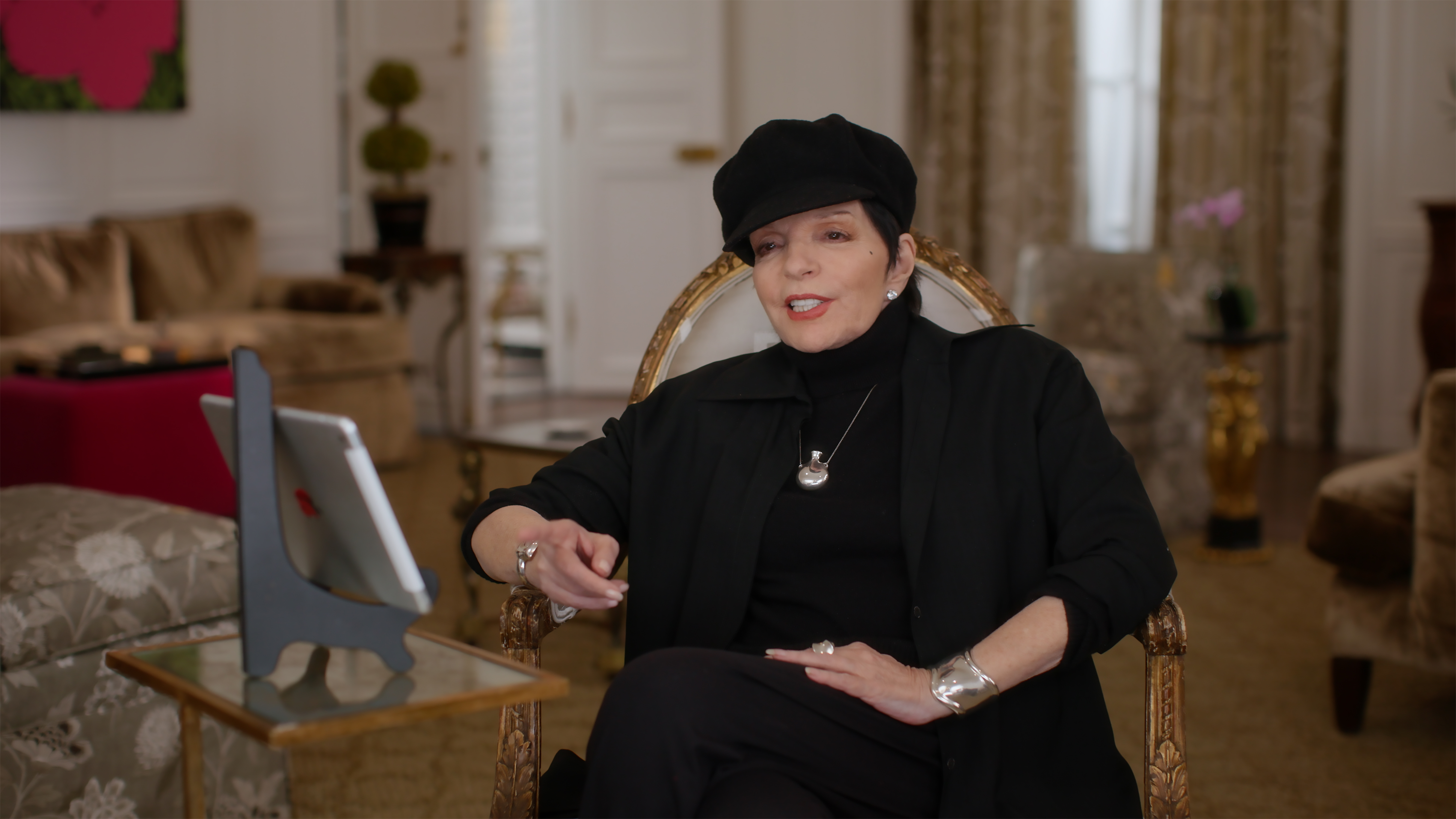
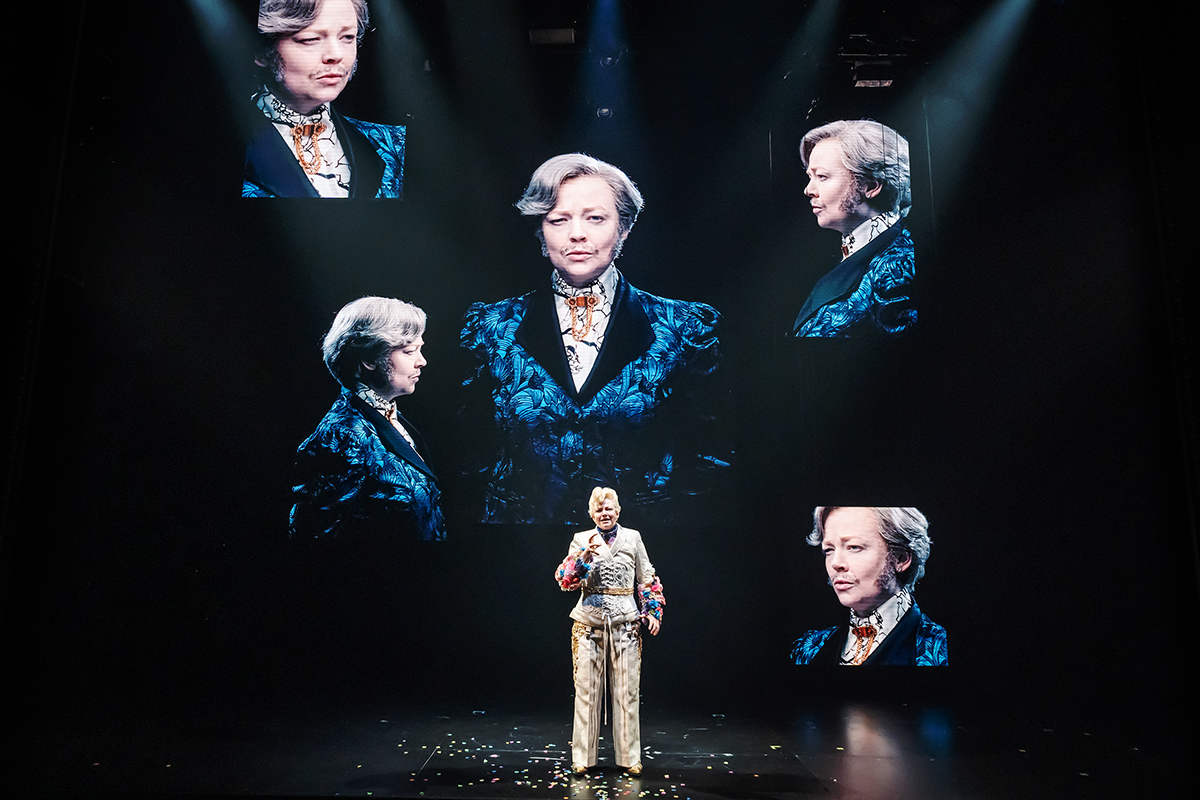
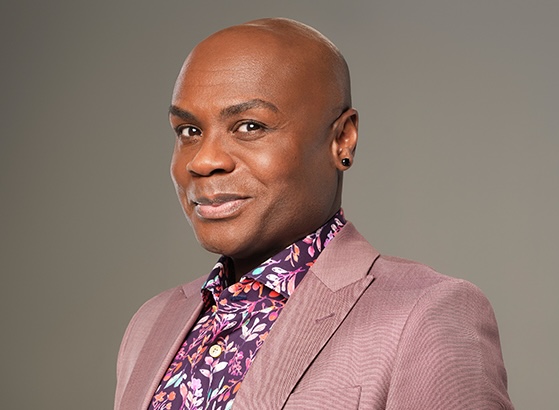















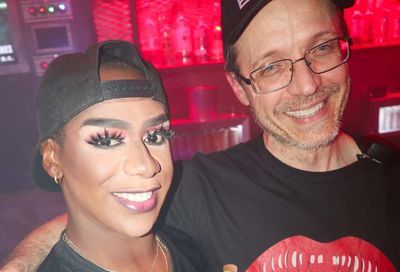
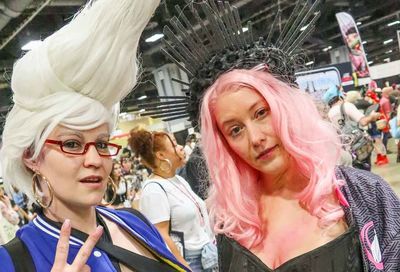
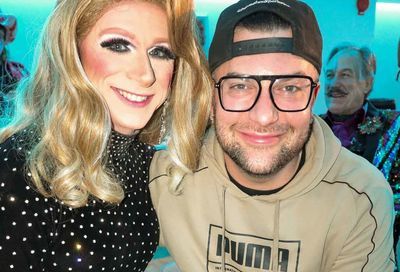
You must be logged in to post a comment.